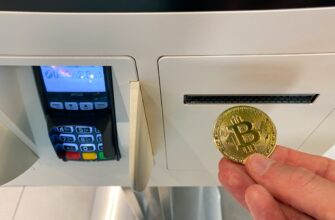- Why Encrypt Your Private Key Without KYC?
- 5 Methods to Encrypt Private Keys Without KYC
- 1. Open-Source Encryption Tools (e.g., GPG)
- 2. Hardware Wallets with Offline Setup
- 3. Paper Wallet Encryption
- 4. Self-Hosted Password Managers
- 5. Shamir’s Secret Sharing (SSS)
- Critical Security Best Practices
- FAQ: Encrypting Keys Without KYC
- Is it legal to encrypt keys without KYC?
- Can I recover funds if I forget my encryption passphrase?
- Are encrypted paper wallets still secure?
- How often should I rotate encrypted keys?
- Can quantum computers break this encryption?
Why Encrypt Your Private Key Without KYC?
Private keys are the ultimate gateway to your cryptocurrency assets. Leaving them unencrypted exposes you to catastrophic risks like theft or accidental exposure. While many platforms enforce Know Your Customer (KYC) verification for key management services, privacy-conscious users often seek alternatives that avoid identity-linked systems. Encrypting your keys without KYC ensures:
- Absolute Privacy: No third party collects or stores your personal data
- Decentralized Security: Eliminates reliance on regulated intermediaries
- Censorship Resistance: Maintain access regardless of geopolitical restrictions
- Reduced Attack Surface: Minimizes exposure to exchange hacks or data breaches
5 Methods to Encrypt Private Keys Without KYC
1. Open-Source Encryption Tools (e.g., GPG)
GNU Privacy Guard (GPG) provides military-grade encryption without registration. Steps:
- Download GPG from official repositories (verify checksums)
- Generate a strong passphrase (12+ characters, mixed characters)
- Encrypt keys using command:
gpg -c --cipher-algo AES256 private.key - Store encrypted file offline on USB drives or encrypted disks
Security Tip: Always use air-gapped devices for key handling.
2. Hardware Wallets with Offline Setup
Devices like Ledger or Trezor encrypt keys internally without internet exposure:
- Purchase anonymously with cash or privacy coins
- Initialize offline using dice-generated entropy
- Set up passphrase encryption (25th word feature)
- Never connect to KYC-enabled software
Warning: Avoid vendor software requiring account creation.
3. Paper Wallet Encryption
Combine physical security with digital encryption:
- Generate keys offline using Bitcoin Core or trusted open-source tools
- Encrypt keys with BIP38 passphrase
- Print encrypted keys on tamper-proof paper
- Store in fire/water-proof containers
4. Self-Hosted Password Managers
Tools like KeePassXC enable local encryption:
- Install on air-gapped computer
- Create encrypted database with Argon2 encryption
- Store private keys as secure notes
- Sync via offline methods (manual USB transfer)
5. Shamir’s Secret Sharing (SSS)
Split encrypted keys into recoverable fragments:
- Use tools like SecureShare
- Encrypt key with AES-256
- Split into 5 shares (require 3 to reconstruct)
- Distribute geographically (e.g., safe deposit boxes)
Critical Security Best Practices
- Verifiable Software Only: Audit open-source tools or use community-vetted solutions
- Multi-Layer Encryption: Combine methods (e.g., GPG + VeraCrypt container)
- Physical Security: Store backups in Faraday bags to block RF signals
- Decoy Wallets: Maintain small amounts in non-encrypted wallets as bait
- Regular Audits: Test recovery process every 6 months
FAQ: Encrypting Keys Without KYC
Is it legal to encrypt keys without KYC?
Yes. Encryption tools are legal worldwide. Regulations typically apply to exchanges, not personal security practices.
Can I recover funds if I forget my encryption passphrase?
No. Without your passphrase or Shamir’s shares, encrypted keys are irrecoverable. Use mnemonic backups stored separately from keys.
Are encrypted paper wallets still secure?
When properly implemented with BIP38 encryption and physical safeguards, they remain highly secure for long-term storage.
How often should I rotate encrypted keys?
Only when compromised. Frequent rotation increases exposure risk. Focus instead on securing original encryption.
Can quantum computers break this encryption?
Current AES-256 encryption remains quantum-resistant. Monitor NIST post-quantum cryptography standards for updates.
Final Note: While KYC-free encryption demands technical diligence, it offers unparalleled sovereignty over your assets. Always prioritize open-source tools, physical security layers, and regular recovery drills. Your keys, your crypto – encrypted without compromise.








